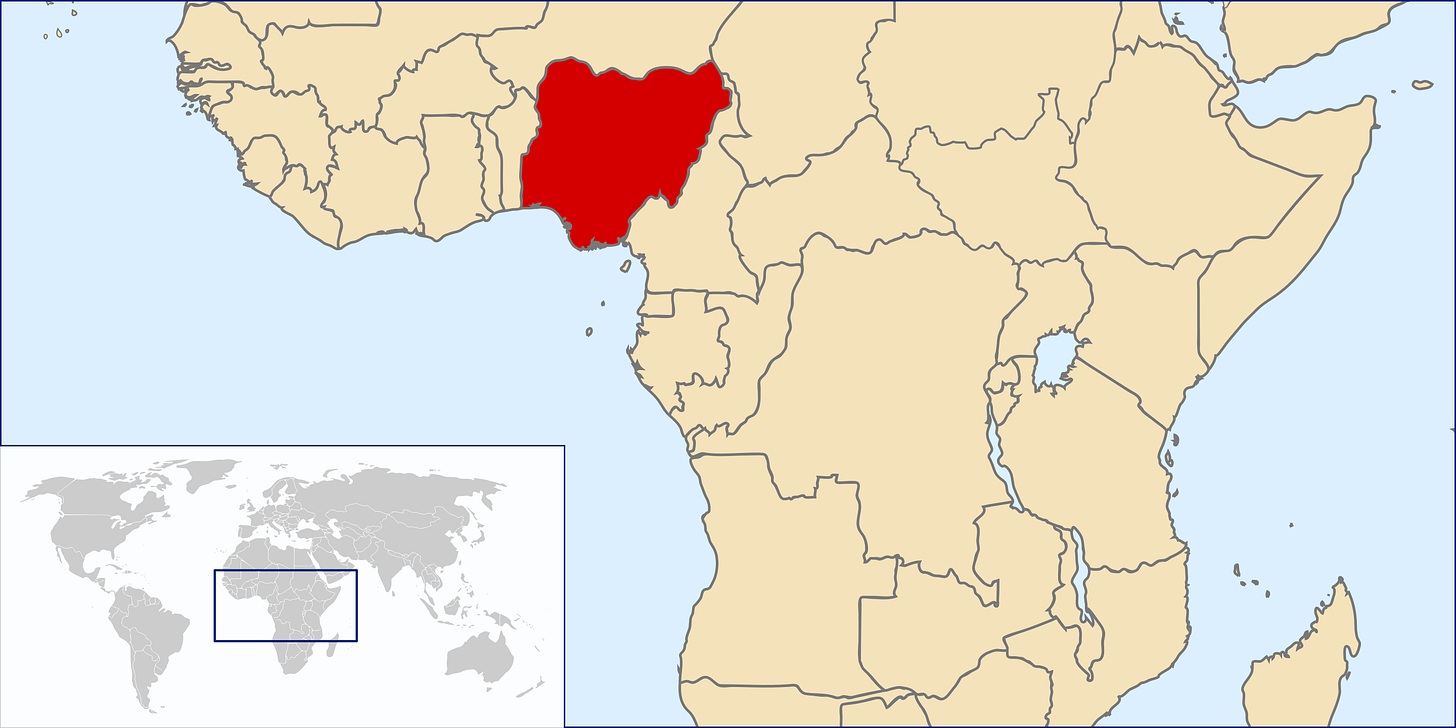🔅 Africa is heading toward a debt crisis.
Today’s Issue: The “Merchant of Death”, sex work to be decriminalised in South Africa, and the mysterious death of a Pakistani journalist in Kenya... ☕
baobabnewsletter@substack.com
Photo of the day: Sahara Desert landscape near the Terkezi Oasis in Chad.
Markets — Year to Date:
🔻 Nigerian SE: 48,881.93 (-1.07%)
🔺 Johannesburg SE: 74,548.14 (+1.14%)
🔻 Ghana SE: 2,460.62 (-11.78%)
🔻 Nairobi SE: 126.46 (-24.03%)
🔻 US S&P 500: 3,934.38 (-17.97%)
🔻 Shanghai Composite: 3,206.95 (-11.71%)
*Data accurate as of the close of markets across the continent
Zambia: IMF wants Zambia to settle its debts ASAP. Zambia defaulted on its sovereign debt in 2020 and is currently in the middle of a $1.3 billion three-year loan programme to help it restructure the debt. Finance Minister Situmbeko Musokotwane says they’re pushing to finish the restructuring by the first quarter of 2023 but can’t guarantee it.
FINANCE
Africa is heading toward a debt crisis.
What’s happening?
Africa is in trouble, and it’s all about the debt, according to the Paris-based Finance for Development Lab. Their model indicates that debt-servicing costs in sub-Saharan Africa are projected to skyrocket by 50% by 2026.
How big is the problem?
In 2026, African nations will need to find $58.7 billion to service their debt. Yikes. Moreover, the number of countries crossing sustainability thresholds will rise to 18 by 2024 from 10 at the moment.
How did we get here?
It’s easy to see how: Interest rates are rising and currencies are weakening, losing 10% in value against the dollar. What's more, the pandemic has added to government debt loads, and since the start of the Ukraine war, foreign bond issuance in Africa has been the lowest since 2016.
The bottom line is that governments must choose between paying off debt or funding social projects like health and education.
Debt investors have largely closed their markets to Africa, so the only recourse may be to appeal to multilateral lenders like the IMF. However, many governments feel that the conditions imposed by the IMF lead to a loss of sovereignty. Not an ideal situation.
ACROSS THE CONTINENT
Other Headlines

🌍 Russian arms dealer Viktor Bout, aka the “Merchant of Death”, has returned home after spending 15 years in prison, in a trade-off with the American basketball star Brittney Griner. Bout's former clients include Charles Taylor of Liberia, Moammar Gadhafi of Libya, and both sides of the civil war in Angola. Though he was the inspiration for the 2005 Nicolas Cage movie “Lord of War”, his public image in Russia is different: Here, he’s seen as a daring businessman who was wrongfully arrested in a US sting operation. The exchange took place in Abu Dhabi, where Bout was put on a private jet to Moscow.
🇿🇦 South Africa's Justice Ministry has proposed legislation to decriminalise sex work. The law, which still needs to pass through Parliament, is expected to provide better protection and access to healthcare for sex workers, as well as reduce stigma and discrimination. The move has been welcomed by advocacy groups, who argue that sex workers will be able to work more closely with the police to tackle violence. The law could also be a step towards greater safety for the estimated 150,000 sex workers in the country, many of whom have experienced violence and discrimination. The proposed law is “long overdue,” according to one political science professor who has been advocating for such a law since 2012. But while it’s a step in the right direction, she cautions that there’s still work to be done—notably, to regulate the sex work industry and to pass laws that address sexual offences. It’s a historic move that’s been decades in the making.
🇰🇪 So here’s a real-life whodunnit: Pakistani journalist Arshad Sharif was shot and killed in Nairobi in October, and the Kenyan authorities said it was a case of mistaken identity. But a two-member fact-finding team sent by the Pakistani government says that the killing was pre-meditated. They reconstructed the crime scene, examined Sharif’s phones and computers, and found several contradictions in the version given by Kenyan authorities. A fact-finding team says there’s a discrepancy between the autopsy reports in Pakistan and Kenya. Sharif fled from Pakistan after the government filed several treason cases against him, and former Prime Minister Imran Khan believes he was murdered for his journalistic work.
🇳🇬 It looks like Nigeria is about to get some serious firepower. President Muhammadu Buhari has approved the delivery of 54 new air assets to the Nigerian Air Force, including attack aircraft, helicopters, and drones. So if you’re a bad guy, it might be time to watch your back. What kind of air assets are we talking about? Nigeria expects to receive M-346 attack aircraft, T-129 ATAK helicopters, Agusta 109 Trekker multi-role helicopters, and Chinese-made Wing Loong II drones. Last year, the country received 12 A-29 Super Tucano planes from the United States, a major upgrade. It’s all part of Nigeria’s effort to combat insecurity in the country, which includes a 13-year-old Islamist insurgency in the northeast and kidnappings for ransom by gunmen in the northwest.
IN TECH
Moove raises $30 million
It’s not every day that you hear of a vehicle finance startup raising $30 million—especially in the form of a private placement Islamic bond (sukuk). But that’s precisely what Moove, a Nigerian-born company that finances cars and electric vehicles, is doing. Franklin Templeton’s Middle East unit is helping arrange the sukuk, and Moove is using the funds to expand its electric vehicle fleet in the UAE. They estimate their 2,000 EVs will reduce 5,000 metric tonnes of carbon dioxide emissions annually. Moove has some impressive investors on board, including Tekton Ventures, Palm Drive Capital, MUFG Innovation Partners, Clocktower Technology Ventures, Speedinvest, Left Lane Capital, AfricInvest, and Kreos Capital. Franklin Templeton’s Chief Investment Officer, Dino Kronfol, believes that private credit needs more support from policymakers in the Gulf region. He believes businesses like Moove, which create jobs immediately, can help the economy and their policy goals over the medium term.
FOOD FOR THOUGHT
Proverb of the Day
“To be without a friend is to be poor indeed.”
— Tanzanian Proverb.






